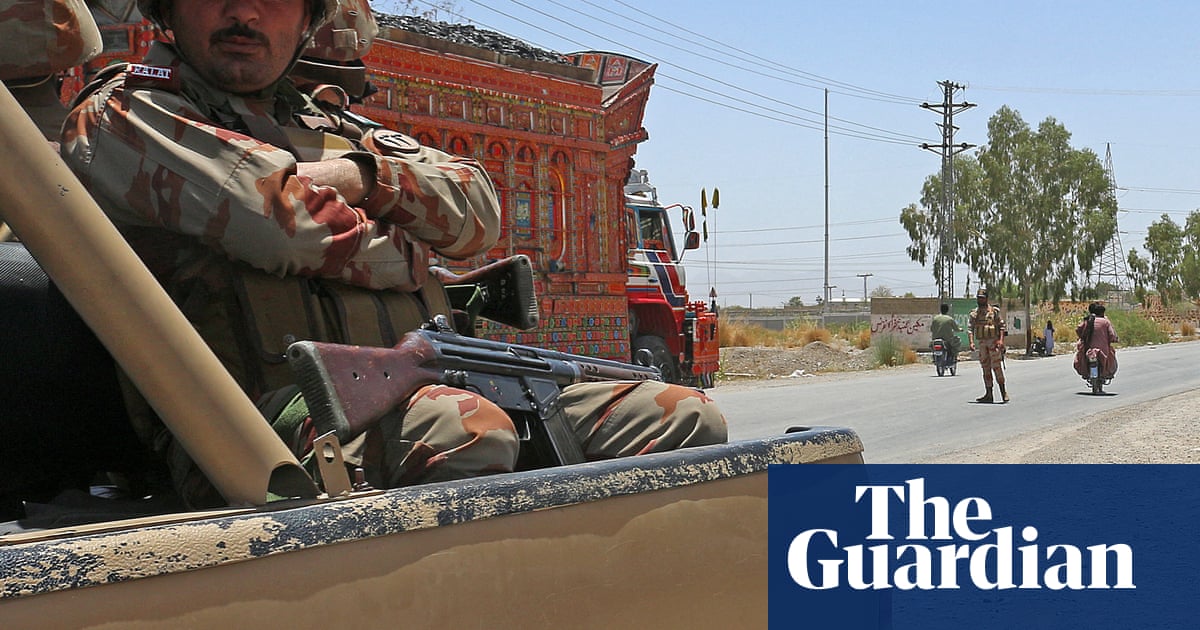Pakistan has blamed India for a suspected suicide attack on a school bus in its south-western province of Balochistan on Wednesday morning that killed four children.
The bus was en route to the army public school in the city of Khuzdar. According to local officials, an attacker drove a vehicle into the bus and then detonated explosives.
Yasir Dashti, the deputy commissioner of Khuzdar, said four children, the bus driver and a security guard were killed and 12 more children were critically injured. He said the initial investigation indicated that it was a suicide bombing.
Three of the children killed were named as 12-year-old Hifsa Kausar, 16-year-old Esha Saleem and 12-year-old Sania Somroo. Officials said the fourth child killed was still being identified
No militant group immediately claimed responsibility for the attack. However, the media wing of Pakistan’s military swiftly issued a statement alleging that its neighbour and rivalIndiahad “planned and orchestrated” the attack.
“Indian terror proxies are being employed as a state tool by India to foment terrorism in Pakistan against soft targets such as innocent children and civilians,” the military statement said.
The accusation comes at a highly volatile moment in India-Pakistan relations. Earlier this month, the two nuclear-armed countries came the closest they had been to war in decades as they launched drones and missiles into each other’s territory, before a ceasefire was declared on 10 May.
The trigger for the conflict was a militant attack in Indian-administered Kashmir in April that killed 26 people. The Indian government accused Pakistan-backed militant groups of being behind the incident and launched targeted missile strikes as “terrorist infrastructure and camps” over the border. Pakistan responded by firing missiles at Indian military targets.
In the aftermath of the ceasefire, the Indian government said any future terror attacks on its territory would be considered an act of war.
Pakistan has denied any involvement in last month’s militant attack in Indian Kashmir. It has become more vocal in blaming India for a rising wave of militant attacks that have struck Pakistan, particularly in the regions of Balochistan and Khyber Pakhtunkhwa.
Pakistan has repeatedly accused India of using proxy militant groups to carry out terror attacks in order to destabilise the country.
In Balochistan, home to a decades-long bloody insurgency, the Balochistan Liberation Army (BLA), a separatist militant group, has been behind a growing number of incidents including suicide bombings and the recent hijacking of a train. In Khyber Pakhtunkhwa, which borders Afghanistan, attacks by the Pakistani Taliban, known as TTP, have been intensifying recently.
Pakistan’s prime minister, Shehbaz Sharif, echoed the military in blaming India for Wednesday’s attack on the school bus. “Terrorists operating under Indian patronage attacking innocent children on a school bus is clear evidence of their hostility,” he said.
A Balochistan government spokesperson, Shahid Rind, denounced the attack as the “hideous face of Indian state-sponsored terrorism”.
The attack echoed an incident more than a decade earlier when the TTP struck an army public school in the city of Peshawar, in Khyber Pakhtunkhwa province, killing more than 100 schoolchildren. It was one of the deadliest militant attacks on children in Pakistan’s history.
